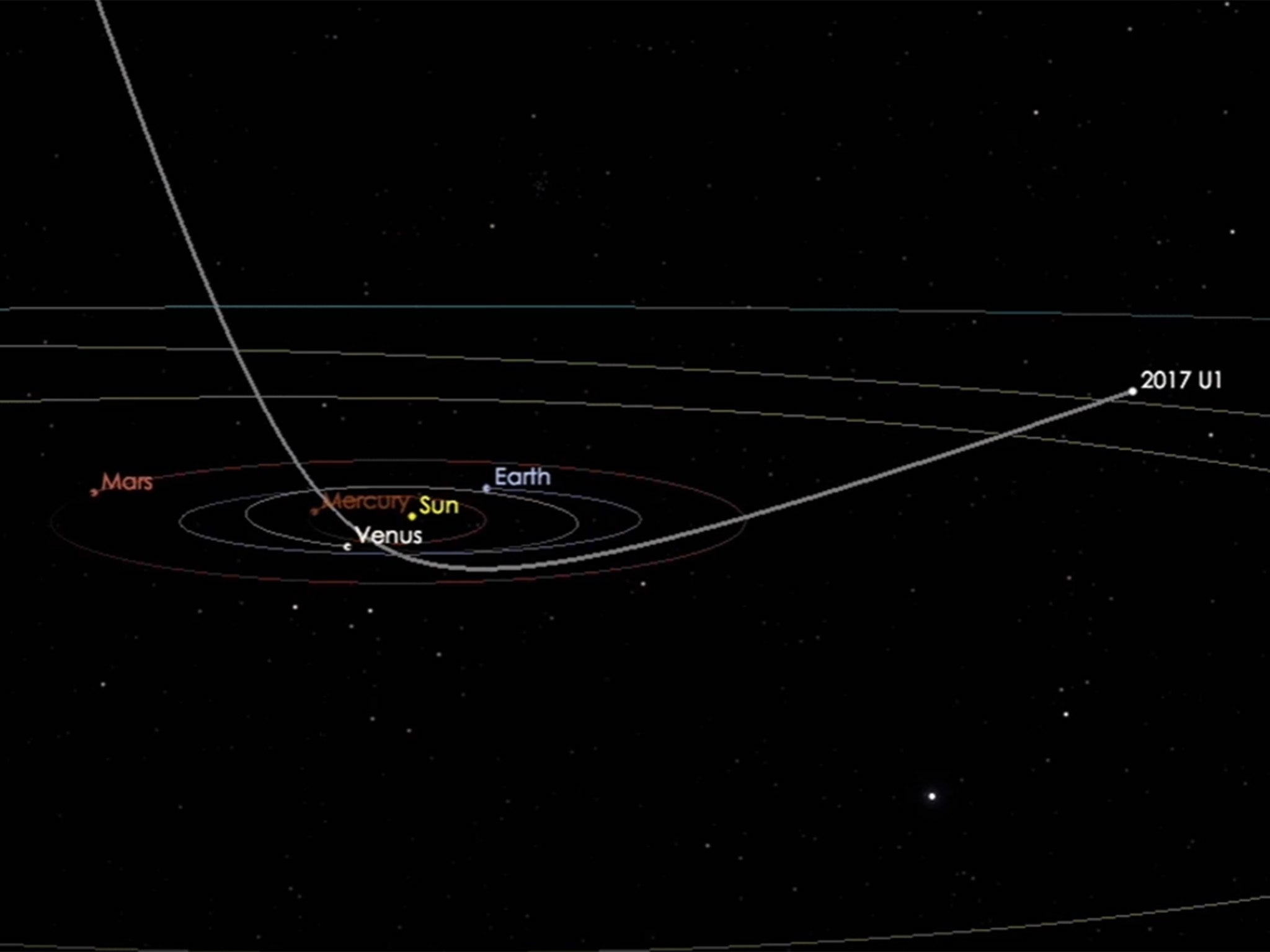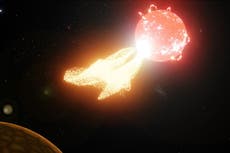Is there anybody out there? Alien company would be welcome during lockdown
Statistically speaking, it is more reasonable to assume that there is something else out there or, at least, there has been at some point, writes Katy Brand


Is there anybody out there? The eternal question. And I don’t just mean in my garden, though a bit of fresh company would be welcome at this point in the pandemic. I mean Out There, in space. Alien life.
And not just primordial microbes, as exciting and significant as that would be (I really will try to be excited about the discovery of primordial microbes on Mars, I promise). No, I mean actual civilisations. “Beings” we could communicate with. Or start a war with, knowing us.
It has been on my mind because firstly, lockdown is claustrophobic and contemplating the bigger picture feels like a relief sometimes. And secondly, because an esteemed professor of astronomy at Harvard University named Avi Loeb has been talking recently to various media outlets about the mysterious object known as ‘Oumuamua that passed through our solar system in 2017.
It was the first interstellar object (that we know of) ever to pass by, and the Pan-STARRS 1 telescope in Hawaii was able to capture a tantalising glimpse of it as it sped away. It moved in a way that was unusual to astronomers, as instead of slowing down with the gravitational pull of the Sun, it seemed to use its energy to accelerate away. Comets do this, but they leave a tail. ‘Oumuamua had no tail.
From the data available, scientists tried to understand its shape and behaviour. Some envisaged an object shaped like a cigar. But Professor Loeb and his team have a different theory – they think it is wide and flat, and captures energy to make it move – like a sail. And if it’s a sail, deliberately designed and built, then who created it?
Professor Loeb has now made the leap in public that he thinks it’s very possible that it has been made by another intelligent civilisation, either long gone or still in existence. It may be a bit of cosmic flotsam, set off on its journey millions of years ago from a place that no longer exists (the likelihood of civilisations blowing themselves up before they manage to reach the universe to make contact elsewhere is depressingly high, statistically speaking).
Or, it could be a fact-finding mission from some beings more advanced than us. What facts it found maybe be dubious in our current state – suffice to say it zoomed off at about 85,000mph so perhaps it didn’t like what it saw.
But whatever it was, like many people I find this kind of talk thrilling. I am a bit of an astronomy buff (a total inability with maths and physics notwithstanding), so I always seek out this kind of story. It’s very much at the people-pleasing sci-fi end of the astronomy spectrum, and as such, Professor Loeb has experienced some strong pushback from his peers.
But he persists, suggesting that in many respects, given the size, age and scale of the universe, the idea that we really are totally alone, totally unique, is actually the more conservative view to hold. Statistically speaking, it is more reasonable to assume that there IS something else out there, or, at least, there has been – at some point.
As I sit in my house, sheltering like everyone else, this is music to my ears. It gives me a strange sort of existential lift. I’m not sure I want to be alone in the universe, partly because I hope someone else is making a better job of civilisation than we currently are.
And also because the thought that we are being watched doesn’t scare me – after all, I have an iPhone that already knows everything about me. Which is a good job, too, not being scared; because Professor Loeb thinks that space may be awash with bits and bobs from extinct civilisations, and as technology increases in sensitivity and sophistication we will start to see more and more objects that defy traditional categorisation and explanation. We may be surrounded by highly engineered light sails. It may become impossible to deny it.
We are not at that point yet, but efforts to make meaningful contact are afoot here, too. The two richest men on earth, Elon Musk and Jeff Bezos, are both sinking billions of dollars of their own money into space exploration projects.
I harbour a dark suspicion that they feel earth might be done with, and they need a route out. But I don’t know that for sure – the irony is that if the super-rich paid their taxes instead of making rockets, the earth would be a better place to live anyway.
But nevertheless, the space race feels like it’s back on and I’m here for it. The question at this point is, are they racing to us? Or are we racing to them?
Join our commenting forum
Join thought-provoking conversations, follow other Independent readers and see their replies
Comments


Bookmark popover
Removed from bookmarks